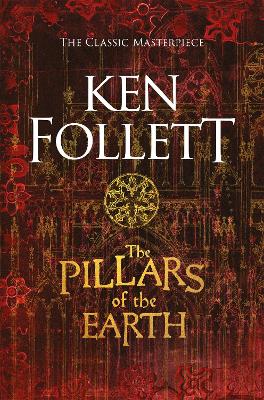Reviewed by Michael @ Knowledge Lost on
Ken Follett was an author of trashy thrillers before turning his hand to the epic novels. So it is not surprising that the novel attempts to explore themes of intrigue and conspiracy against this historical event. I’ve only ever read one other Follett novel (The Eye of the Needle) and while I thought this was a better book they are very similar.
One of the biggest problems I had with both novels is Ken Follett’s approach to women. In particular his creepy schoolboy approach to breasts, I’m not saying I’m not a fan but the way Follett’s writes about them, reminds me of George R. R. Martin and Haruki Murakami. I don’t know about you but it felt like every woman in Kingsbridge has massive breasts and if they didn’t they will be forever alone. On the plus side they won’t be raped either; but all the large breasted women ended up married and the flat chested ones were left for bigger boobs.
One of the positives of this novel was the cathedral; it was the most interesting character in the whole novel. We get to witness the rise in gothic architecture in the Romanesque age and I found the insights into the architectural evolution were so interesting. This seems to be the most researched part of the novel and I think was the only reason to read this book.
My wife loves this novel and I can see why people will enjoy this novel but considering that her favourite novels include this and Outlander makes me worry. She seems to be interesting in epic novels with incredibly flawed men. I hope she isn’t trying to tell me anything but I can appreciate her passion towards these epics.
Every man in the novel seems overly flawed with the exception of the asexual Prior. I know Follett’s loves sexual frustrated men and he struggled to write Prior Philip’s so he decided to make him completely uninterested in sex. Which is a huge contrast to every other male in the book. At times I had to stop reading this novel out of frustration but managed to power through.
I think if you really love this epic you don’t mind how long this novel is but if not this feels like it could use a good editing. This book sits at over a thousand pages and there is so much padding that could have been cut out to bring this book back down to at least 750. The themes in this novel didn’t feel like they were executed properly; there are many medieval novels that talk about the corruption of the Christian church, abuse of power, greed and gender politics. What The Pillars of the Earth did that felt unique was explore passion and base an entire novel around the construction of this one cathedral. The passion and architecture is the key to this book and really without them it would have just been a thriller written as a historical novel.
While I had a lot of problems with The Pillars of the Earth, I did like parts of this novel and enjoyed raging at the other parts. I can know join in on the cultural conversation for this novel, but maybe I’m too late for this. I read Twilight for the same reason and do enjoy raging in reviews but I can’t say this was a bad read. I respect everyone who loved this book and I’m not saying that because my wife loved it, I just can see what would interest people here.
This review originally appeared on my blog; http://literary-exploration.com/2013/09/29/book-review-the-pillars-of-the-earth/
Reading updates
- Started reading
- 19 September, 2013: Finished reading
- 19 September, 2013: Reviewed
